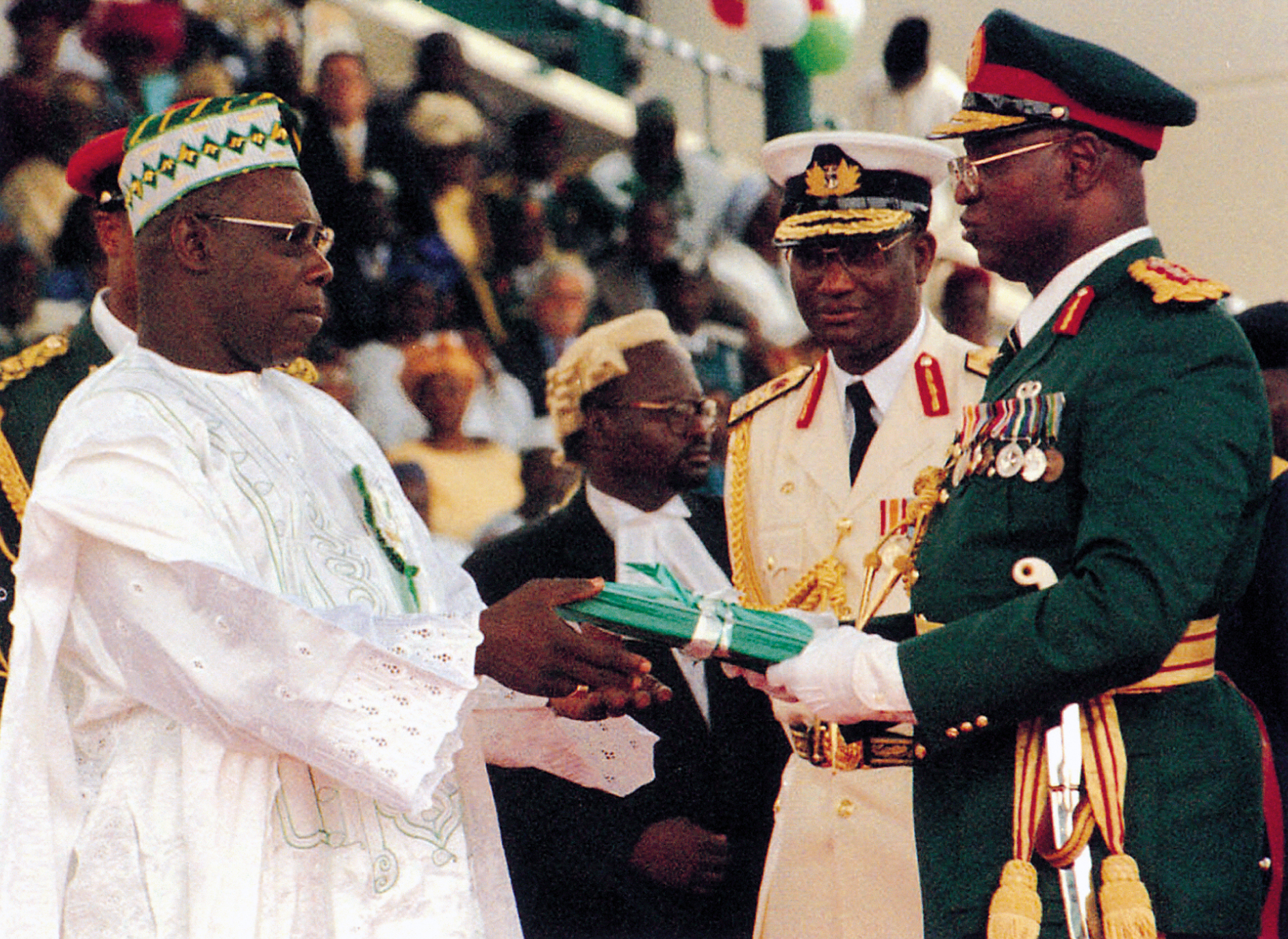Obasanjo, Olusegun, << oh BOS sahn joh, oh loo SHAY guhn >> (1937-…), was president of Nigeria from 1999 to 2007. He worked to improve living standards and fight corruption in Nigeria.

Between 1966 and 1999, a series of military rulers governed Nigeria. One of these, General Murtala Ramat Mohammed, was assassinated in 1976. Obasanjo, who had been Mohammed’s army chief of staff, succeeded him as head of state. In 1979, Obasanjo voluntarily returned power to an elected civilian president. He then retired from the army and set up a farm in his home state.
Military leaders again took control of Nigeria’s government in 1983. Ten years later, the brutally repressive General Sani Abacha declared himself president. Obasanjo became an outspoken opponent of Abacha. In 1995, Obasanjo was charged with plotting to overthrow Abacha’s government and imprisoned.
In 1998, Abacha died. His successor, General Abdulsalami Abubakar, immediately released Obasanjo and some other political prisoners. Abubakar also began a transition to elected government in Nigeria. In 1998, Obasanjo became the presidential candidate of the People’s Democratic Party (PDP). He won the presidential election in 1999.
Obasanjo won reelection in 2003, but some observers questioned whether the election was fair. In 2006, his supporters tried to amend the Constitution to allow him another term, but failed. In April 2007, Umaru Yar’Adua, governor of the northern state of Katsina, was elected president. Some observers claimed the elections were unfair.
Obasanjo was born on March 5, 1937, in Abeokuta, southwestern Nigeria, and belongs to the Yoruba ethnic group. He joined the army in 1958 and rose steadily through the ranks. He served during Nigeria’s civil war (1967-1970), when the Eastern Region of the country declared itself the independent Republic of Biafra.
